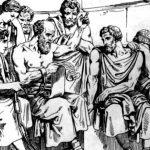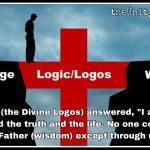
We recommend the Socratic Method for all discussions, interactions, conflict resolution, teaching, and processing emotional upsets, as it is a “mode of questioning that deeply probes the meaning, justification, or logical strength of a claim, position, or line of reasoning. Socratic Questioning can be carried out in a variety of ways and adapted to many levels of ability and understanding (CriticalThinking.org).” Read more »













